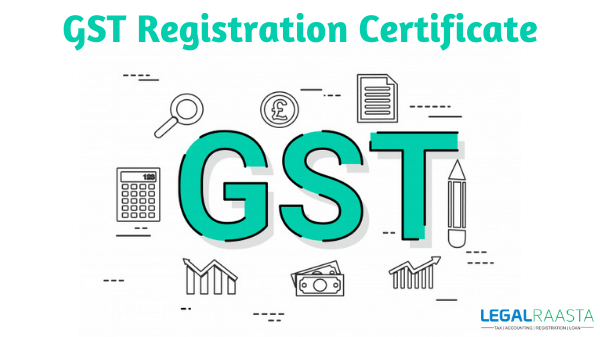Why Singapore GST Registration is Critical for Your Start-up
The Ultimate Overview to Streamlining the GST Registration Process and Requirements for Local Business Owners

Comprehending GST Basics
To comprehend the fundamentals of the Item and Solutions Tax (GST) system, small company proprietors must initially understand its underlying implications and concepts. GST is a value-added tax imposed on a lot of items and services for residential usage. It intends to improve the taxation procedure by replacing multiple indirect taxes enforced by the state and central federal governments. Under the GST program, companies are needed to accumulate and register tax on part of the federal government, making sure openness and conformity.
Among the key principles of GST is input tax credit score, which enables organizations to claim credit for taxes paid on their purchases. This device protects against the cascading impact of tax obligations and promotes efficiency in the tax system. Additionally, GST is a destination-based tax obligation, meaning that the tax obligation is levied at the point of usage as opposed to the point of beginning. This ensures fair circulation of tax revenue amongst states based upon where the items or solutions are consumed. Understanding these fundamental principles is vital for small company owners to navigate the intricacies of the GST system and make sure compliance with the law.
Eligibility Requirements for Enrollment
Having established a foundational understanding of GST concepts, local business owners need to now meet particular eligibility requirements to wage the registration procedure. In India, entities participated in the supply of goods or solutions with a yearly aggregate turnover going beyond Rs. 40 lakhs (Rs. 10 lakhs for special classification states) are called for to register for GST. In addition, specific services such as those entailed in inter-state supply of items, informal taxed individuals, and those required to pay tax under the reverse charge system must register for GST regardless of their turnover. Companies that were registered under the previous tax regime (BARREL, service tax, and so on) are likewise mandated to sign up under GST. Farming businesses that just provide create out of main production are excluded from GST registration. It is vital for local business owner to carefully analyze their qualification based on these criteria to make sure compliance with the regulation and stay clear of any kind of fines for non-compliance.
Papers Required for GST Registration

Simplified Registration Process Actions
Adhering to the collection and verification of the requisite documents, the registration procedure for GST can be navigated via a series of simplified steps made to help with effective compliance for small company proprietors. The very first action involves checking out the GST website and choosing the 'New Enrollment' option. Subsequently, the applicant has to complete Part A of the GST REG-01 type with details such as frying pan, mobile number, and e-mail address to obtain an OTP for confirmation. When the OTP is gotten and gotten in, a Short-lived Reference Number (TRN) is produced for additional process. The next step needs loading out Component B of the type with needed service details, posting supporting records, and finishing the confirmation procedure utilizing DSC or EVC. Ultimately, upon successful verification, an Application Reference Number (ARN) is provided, showing the completion of the GST registration procedure. By adhering to these streamlined steps, small organization proprietors you could try here can properly register for GST and guarantee conformity with tax obligation guidelines.
Tips for Ensuring Conformity
To maintain governing adherence and functional stability, attentive oversight and aggressive actions are crucial in guaranteeing compliance with GST demands for tiny service proprietors. Local business proprietors must remain updated with GST policies, filing target dates, and any kind of adjustments in tax obligation rates to avoid charges and maintain a good standing with tax obligation authorities. One crucial pointer for compliance is to maintain thorough and accurate documents of all transactions, including invoices, costs, and invoices related to GST. Routinely resolving financial documents with GST returns can assist in determining and correcting any inconsistencies promptly. In addition, carrying out regular inner audits or seeking specialist support can make sure that business is complying with all GST guidelines appropriately. It is additionally important for tiny business owners to buy GST-compliant accountancy software that can enhance the tax declaring procedure and decrease errors. Lastly, going to GST recognition workshops or training programs can enhance understanding and compliance with GST policies, ultimately benefiting the business in the long run.
Final Thought
Finally, tiny organization proprietors need to comprehend the fundamentals of GST, fulfill the qualification standards, collect needed documents, and follow the simplified enrollment process steps to make certain conformity. By simplifying the GST enrollment process and needs, small company proprietors can stay clear of penalties and operate their organizations smoothly within the legal framework - Singapore GST Registration. It is crucial for small company owners to remain educated and certified with GST regulations to preserve like it a successful service operation
Little service proprietors looking for GST registration must guarantee they collect and submit the required records to complete the registration procedure successfully. The documents required for GST enrollment commonly include proof of business enrollment or incorporation, FRYING PAN (Long-term Account Number) card of the organization address, identification and entity evidence of the promoters/partners/directors, photos, address evidence of the location of organization, financial institution account statements or terminated cheques, and authorization forms. Attending GST recognition workshops or training programs can improve understanding and conformity with GST policies, inevitably profiting the organization in the long run.
By simplifying the GST enrollment process and demands, tiny business owners can prevent fines and run their businesses efficiently within the lawful structure. It is crucial for little company proprietors to stay educated and compliant with GST regulations to maintain an effective company procedure.